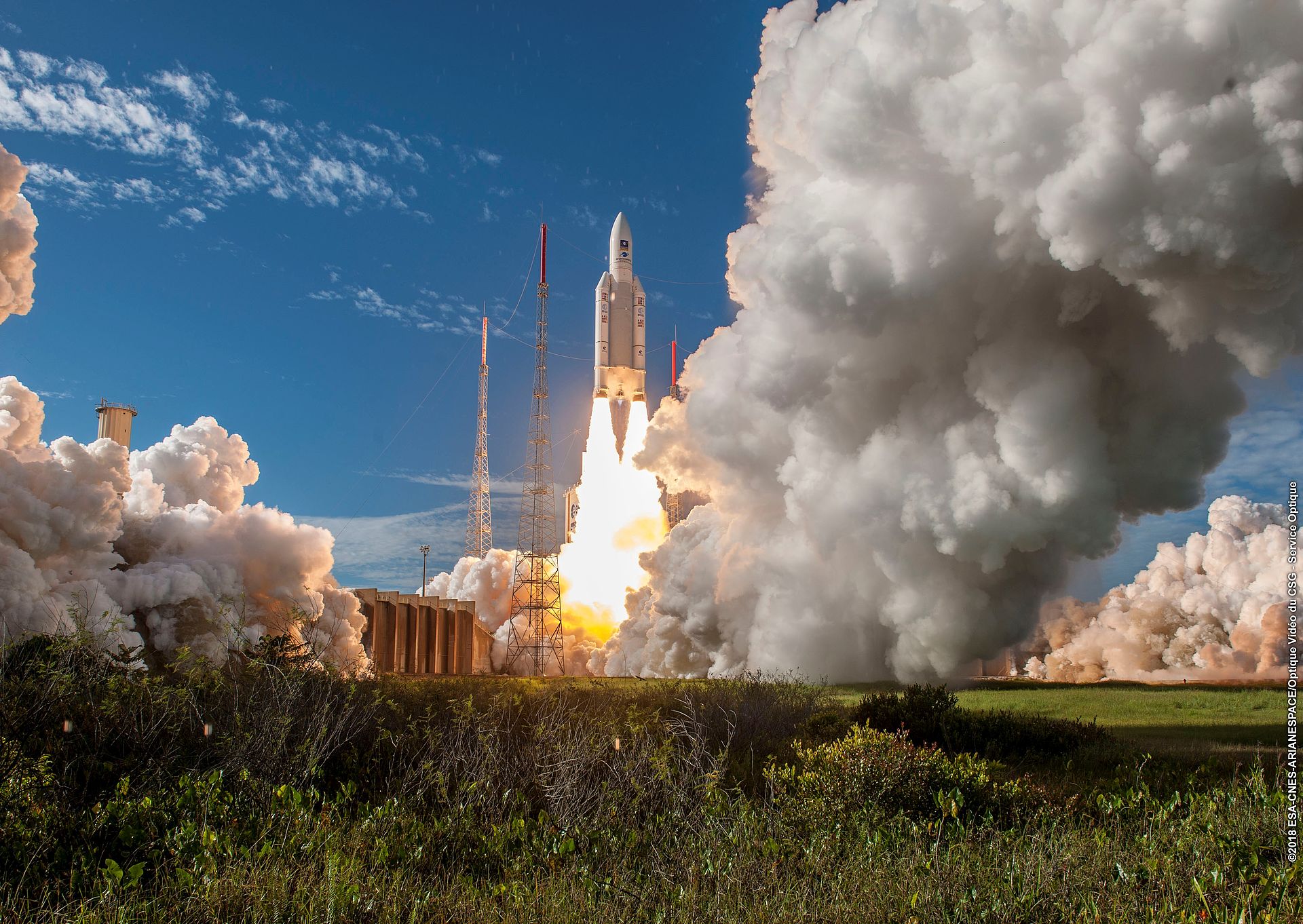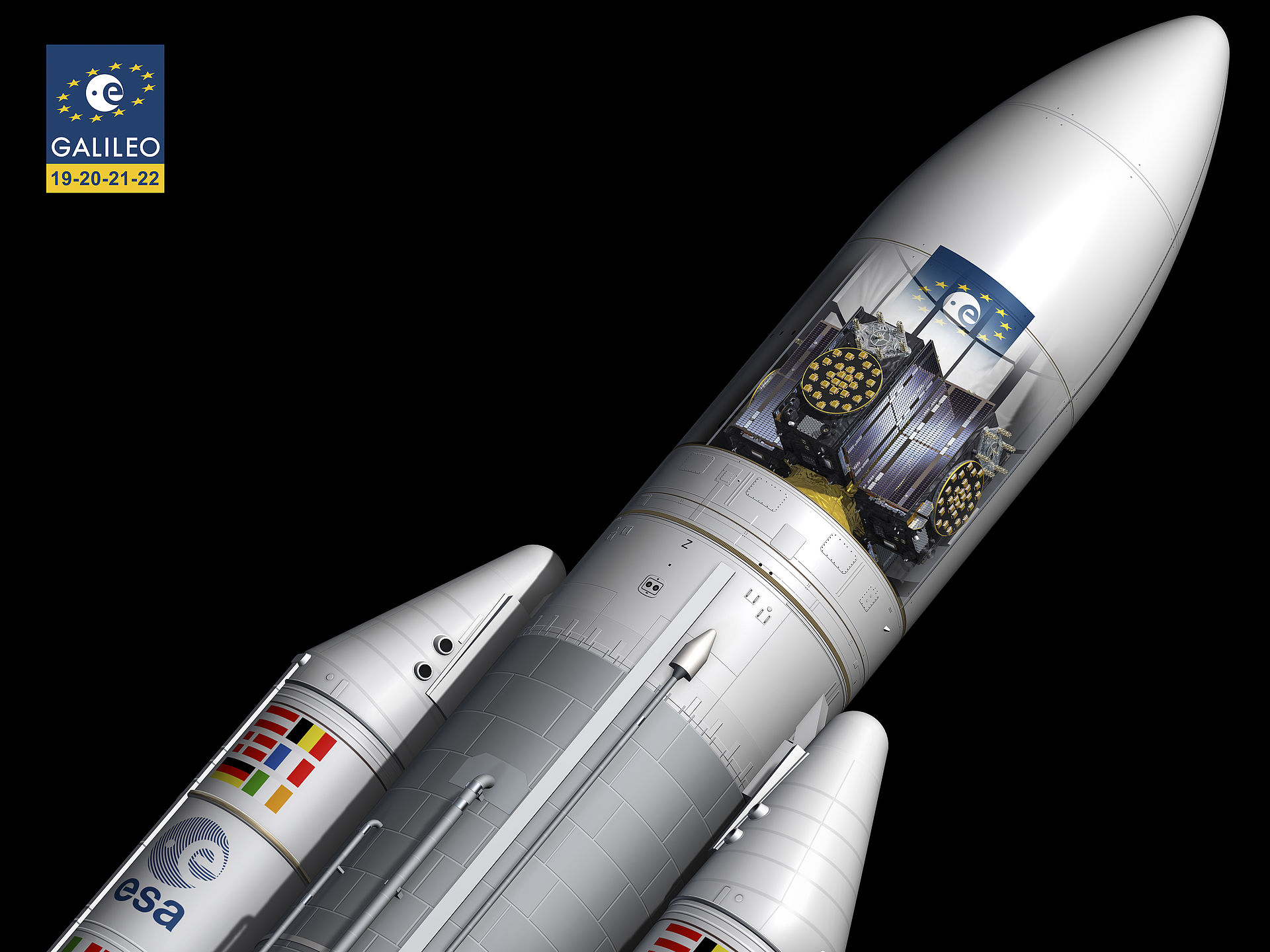
July 25, 2018, Kourou / Bremen. Lift-off for Tara, Samuel, Anna and Ellen: Today at 13.25 hours (CET) the final four Galileo FOC* satellites from Batch 2 commenced their voyage into space on board an Ariane 5 launcher which lifted off from the Kourou space center in French-Guyana. OHB employees across Europe watched the launch via live stream, crossing their fingers for a successful flight. The satellites reached their destination just under four hours later at 17.25 hours (CET) and are now orbiting the earth. “These were the four last Galileo satellites from Batch 2 and both the launch and the release of the satellites into their orbits went off without a hitch. Immediately after being released into orbit, the satellites activated their systems, unfolded their solar panels and aligned themselves towards the sun. This was immediately followed by preliminary testing,” says Dr. Manuel Czech, Galileo project manager at OHB. The satellites will now enter a test phase lasting around six months. For the first eleven days, they will be managed by the control center of the French space agency CNES in Toulouse before being handed over to the Galileo control center in Oberpfaffenhofen.
This brings to 26 the total number of Galileo satellites currently in space. Of these, 22 have been developed, built and tested by OHB.
Thanks to the number of satellites in space, initial services are available since December 2016. Recent smartphones receive the open navigation service for the general public. Public regulated service, which serves institutional users such as government authorities, the police or the fire brigade, and the search and rescue service, which enables accurate and reliable identification of emergency signals are also available demonstrating the outstanding precision that the system is achieving. Once it is fully up and running, the system will provide maximum precision and reliability.
Moreover, Europe will be gaining additional independence thanks to its own navigation system. “We are proud to be making a decisive contribution to this with our navigation satellites,” says Dr. Manuel Czech.
As far as OHB is concerned, work on Galileo will continue without any interruption as the next launch is just around the corner. “Our colleagues are already working on Batch 3, with the first launch scheduled for 2020. Thereafter, two additional satellites will follow about every three months until all the twelve Batch 3 satellites are ready for launch,” says Dr. Wolfgang Paetsch, a member of the Management Board of OHB System AG. Planning for Batch 4 has also already commenced. “At the moment, we are in the bidding phase and the requirements of the European Space Agency have been released. With the new generation, we will be attempting to improve signal and service quality, optimize costs and increase safety,” adds Dr. Wolfgang Paetsch.
* The Full Operational Capability phase of the Galileo programme is managed and fully funded by the European Union. The European Commission and the European Space Agency (ESA) have signed a delegation agreement by which ESA acts as design and procurement agent on behalf of the Commission. The views expressed here can in no way be taken to reflect the official opinion of the European Union and/or ESA. Galileo is a trademark of the EU.
Contact for media representatives:
Marianne Radel
Head of Corporate Communications
Phone: +49 421 2020 9159
Email: marianne.radel@ohb.de
Contact for investors and analysts:
Marcel Dietz
Investor Relations
Phone: +49 421 2020 6426
Email: ir@ohb.de

